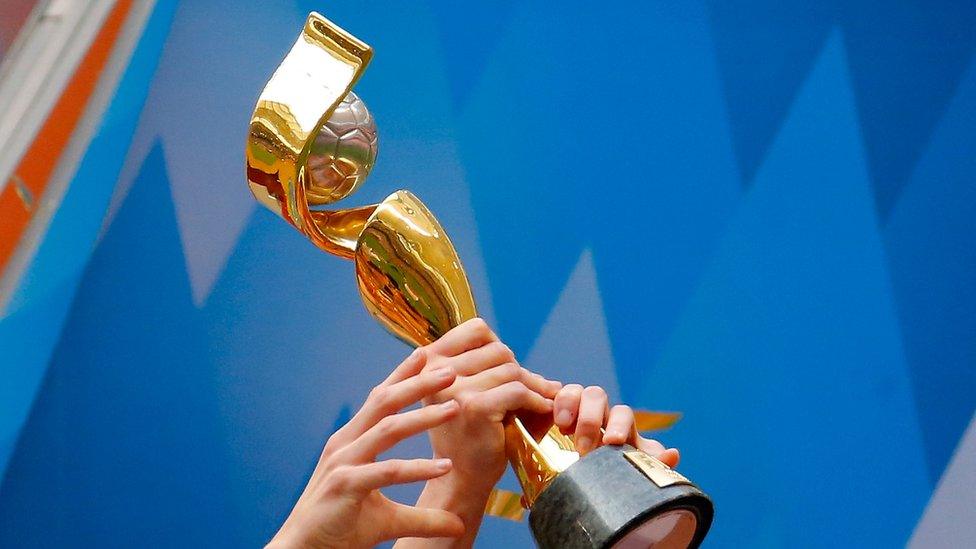Spanish women footballers vote to strike over pay
- Published
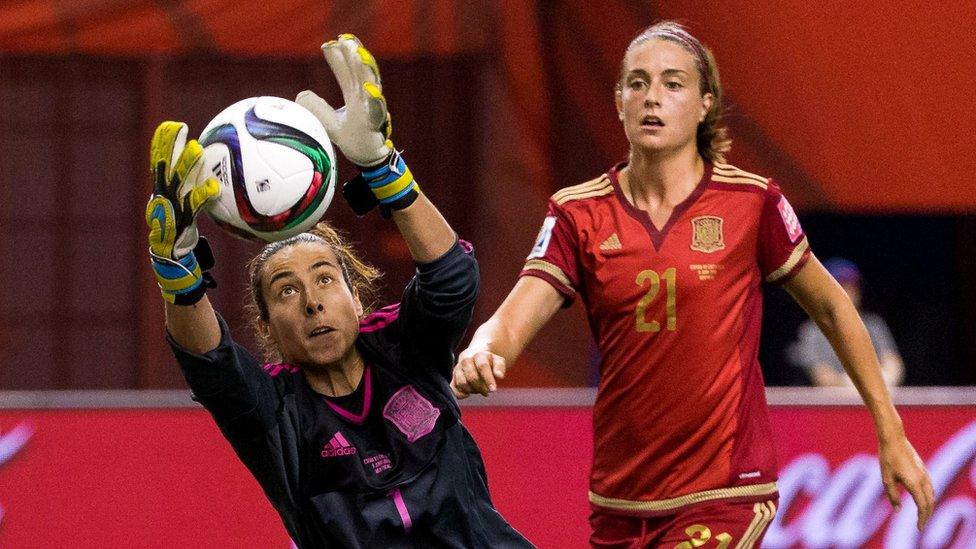
Spanish goalkeeper Ainhoa Tirapu (L) said it was time for women in sport to "fight for our rights"
Almost 200 women footballers in Spain's first division have voted to strike in a disagreement over pay and conditions in the top league.
The action was supported by 93% of players employed by 16 clubs at a meeting in Madrid on Tuesday after more than a year of failed negotiations.
Clubs are proposing a minimum wage of €16,000 ($17,000; £14,000), but unions representing the players are asking for at least €20,000.
A date for the strike has not been set.
One of the unresolved issues relates to women players being recognised as full-time professional footballers.
The salaries of those on part-time contracts was also a stumbling block, the Association of Spanish Footballers (AFE) said. The three unions representing the players want a minimum of €12,000, but the clubs are proposing €8,000.
"We are 100% football players, every hour of the day," said Ainhoa Tirapu, vice-president of the AFE women's football committee and a goalkeeper for Athletic Bilbao and the women's national team. "But there are red lines such as bias."
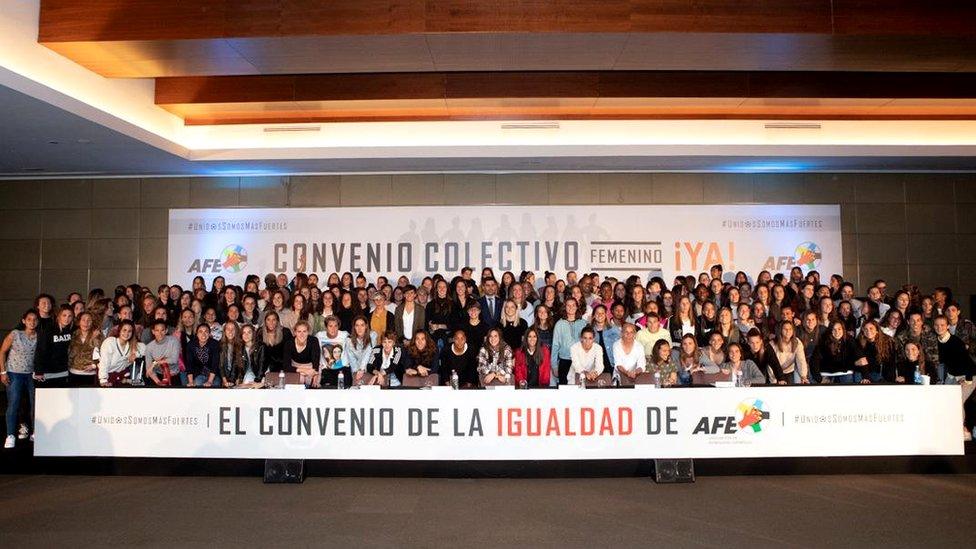
Strike action was supported by 93% of the women playing for all of Spain's top flight clubs
In an AFE statement (in Spanish), she added: "We asked for minimum rights as workers, we have battled to achieve it, external.
"It's not just money - we have lowered our red lines, but nothing has been achieved. Now we can fight and we are paving the way for other players. We must not be inactive and fight for our rights."
Any strike action could have an impact on the UEFA Women's Champions League competition, including Manchester City's last-16 tie with Atletico Madrid next week.
Negotiations between the Association of Women's Football Clubs (ACFF) and unions began last October.
Interest in women's football has soared in recent years, with TV audiences and spectator numbers at matches increasing steadily.
Women players, however, are still paid far less than their male counterparts in their equivalent leagues and international competitions.

You might also be interested in:
Women's football on the rise
- Published25 June 2019
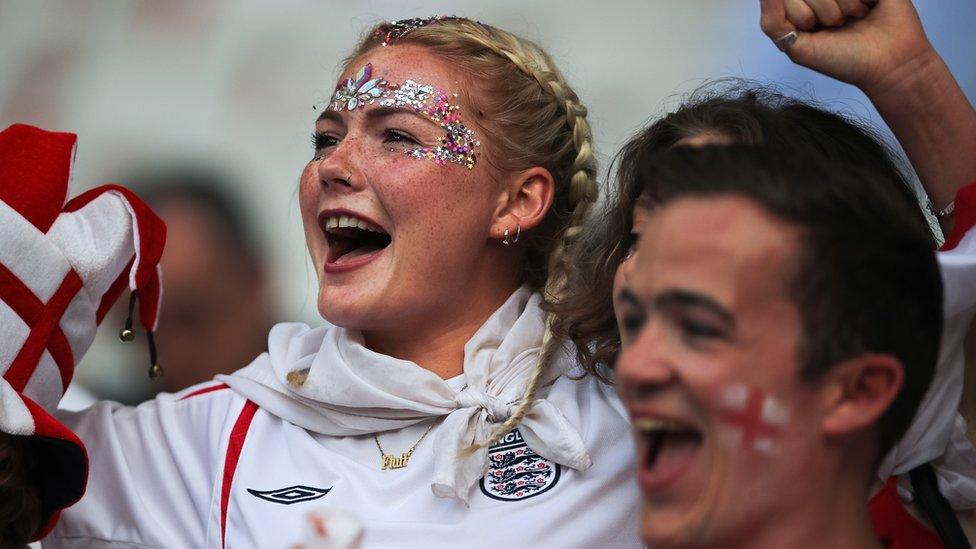
- Published7 June 2019
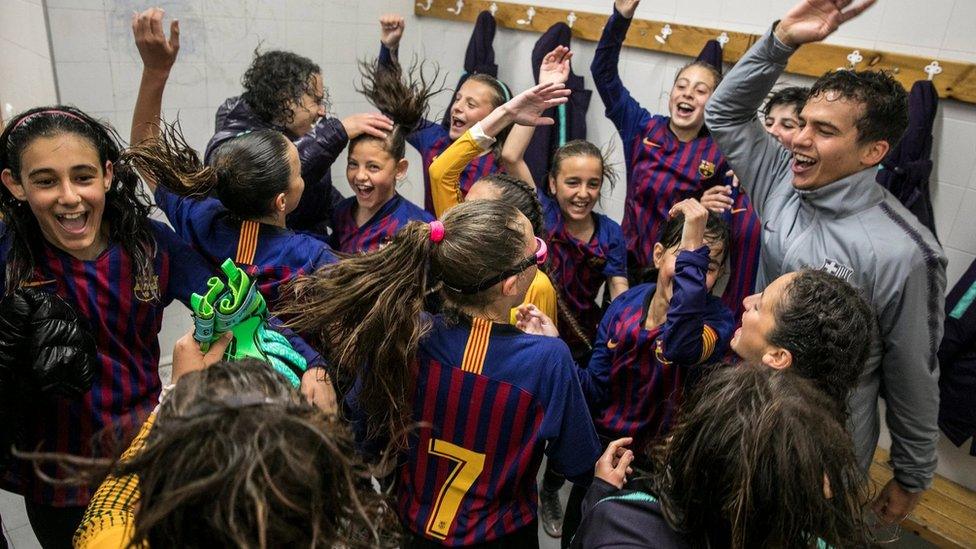
- Published8 July 2019
